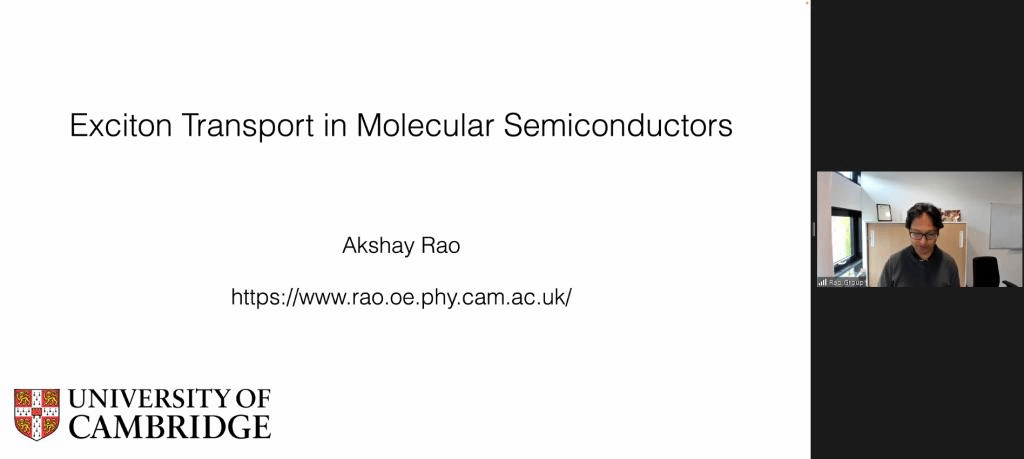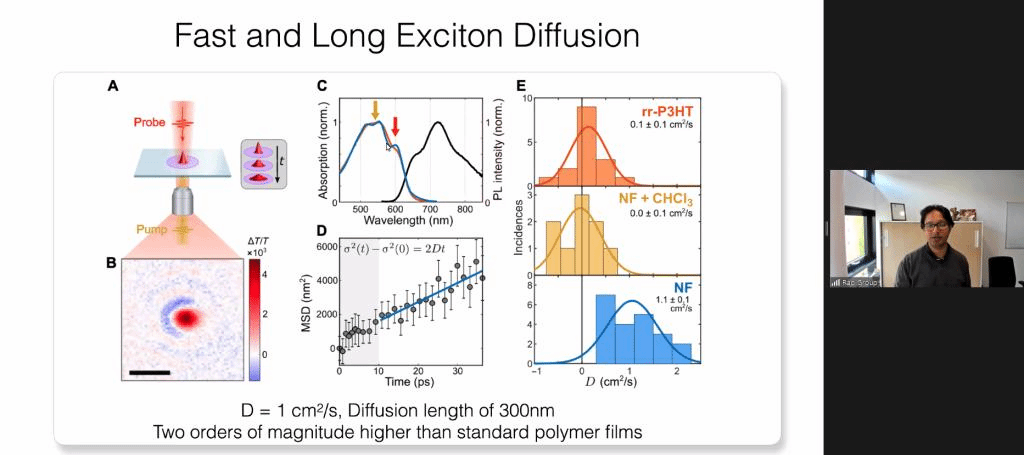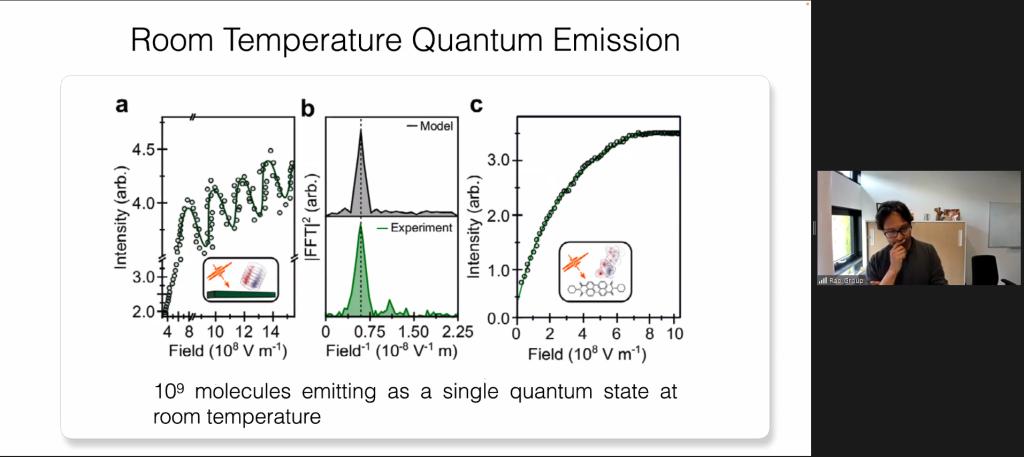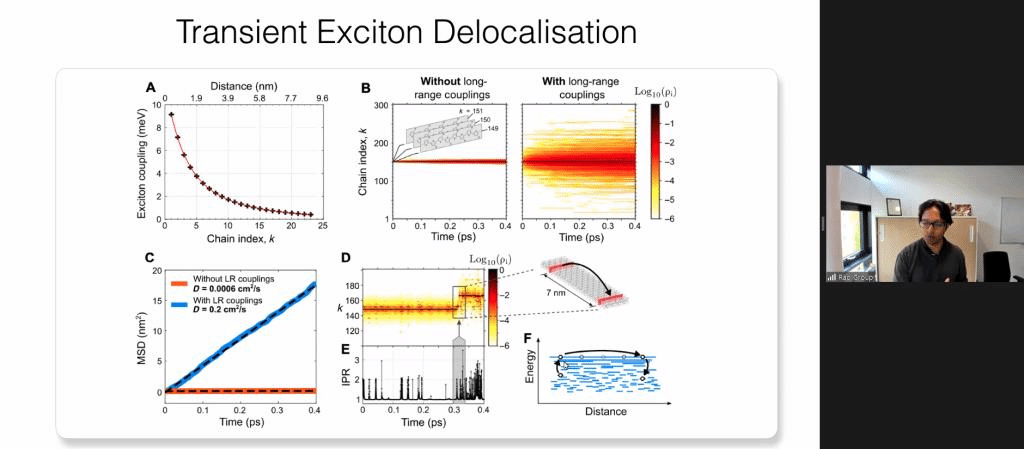2022年4月25日,受天津大学胡文平教授及香港城市大学张华教授邀请,剑桥大学Akshay Rao教授通过ZOOM平台直播了题目为“Exciton Transport in Molecular Semiconductors ”的学术报告。

在本次学术报告中,Akshay Rao教授主要围绕半导体器件中的激子输运进行学术研讨。Akshay Rao教授介绍了激子的概念、分子半导体器件中的激子输运,并回顾了描述半导体材料中激子输运常用的模型。Akshay Rao教授指出,目前在描述激子输运的模型中,在Förster 能量传递和相干输运两者之间,仍存在一段没有被合理描述的空白区域。基于此背景,Rao教授介绍了课题组提出的新输运机制:“瞬态激子离域”。他表示,通过这个机制,课题组发现了在分子半导体实现中超快(D> 1 cm2/s)和长程激子输运(> 300 nm)的可能性。



内容汇报结束后,Akshay Rao教授对此次报告做出总结,并展望了瞬态离域模型对描述长程有序有机半导体激子运输的前景。报告结束后,Akshay Rao教授与听众详细探讨了抑制激子的解离和扩散的策略,以及如何实现光稳定有机电子器件等问题。
报告人简介:
Akshay received his undergraduate degree from St Stephen's College, the University of Delhi in 2006 and his MSc from the University of Sheffield in 2007. He received his Ph.D. from the University of Cambridge in 2011, working in the group of Prof. Sir Richard Friend, following which he held a Junior Research Fellowship at Cambridge. In October 2014 he started his independent research group in Cambridge supported by an EPSRC Early Career Fellowship and Winton Advanced Research Fellowship. Akshay currently holds the Harding Assistant Professorship at the Cavendish Laboratory in Cambridge. His research group, which consists of about 20 PhDs and postdocs is interested in the optical and electronic properties of next-generation energy materials. The group studies these materials with novel optical spectroscopies and microscopies, as well as using the insights gained to develop new materials and device concepts. Akshay is also co-founder of two startups, Cambridge Photon Technology and Cambridge Vislon.